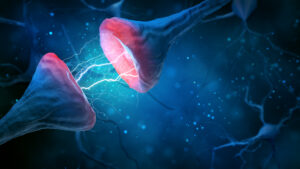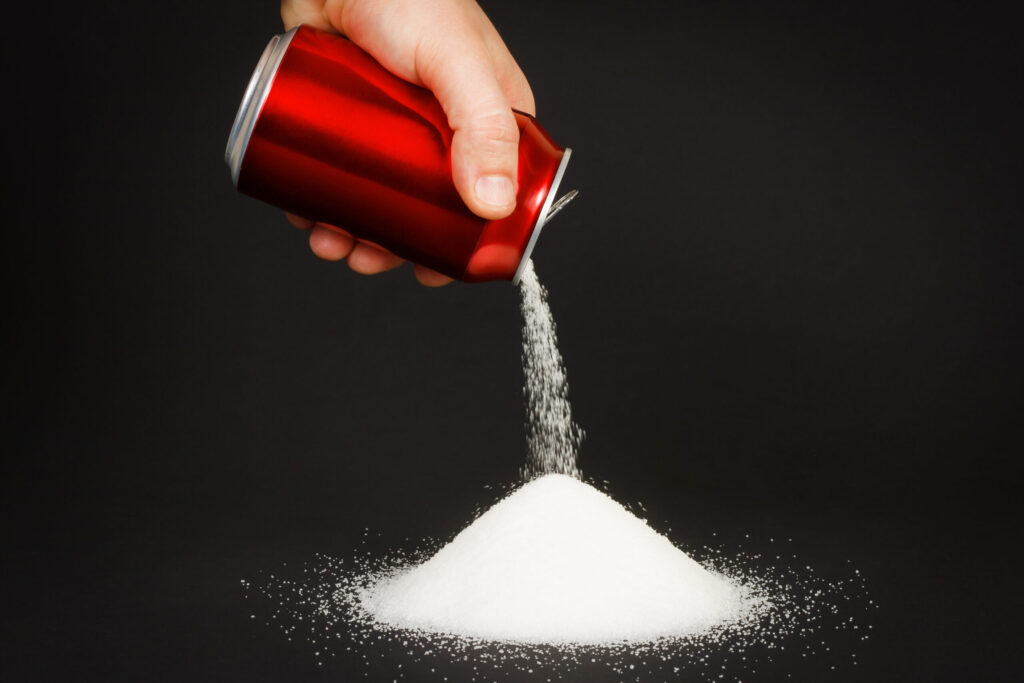Preserve Your Memories – Seven Things to Avoid for Good Brain Health
- BrainTap App, BrainTap Technologies, Education, Health and Wellness, Healthy Eating, The BrainTap Headset
Share this post on social media


Close your eyes. Now, think back to a time in your life when you experienced something truly joyful.
 Whatever that time was, picture it in your mind. Can you remember all the sights, sounds, smells, and tastes from that day? When you have that picture firmly in your mind, think about how you feel just remembering that day.
Whatever that time was, picture it in your mind. Can you remember all the sights, sounds, smells, and tastes from that day? When you have that picture firmly in your mind, think about how you feel just remembering that day.
Your memories give you a sense of self. They’re what make surroundings familiar, remind you of your past, and give you a way to navigate the future. Our memories make up who we are.
When you remember something, that image isn’t just popping up from thin air. Instead you get that picture from an incredibly complex series of events. Your memory is made up of different systems that help you create, store and recall what you need to remember. Every single thing you remember is a complex picture of that thing. If you think of an object, such as a pencil, your brain not only brings you the object’s name, but it also gives you the shape, function, sounds, and smells. Every aspect of that item is formed in that memory and all those pieces that come together, come from different areas. As science races to find cures for diseases such as Alzheimer’s, they’re just beginning to understand how all the pieces come together to form a whole and complete picture.
For a Crash Course on Memories and How They are Made, check out this video:
The first step in creating a memory is encoding. This is a biological function that begins with your senses. Think of the first person you fell in love with. When you met that person, your senses took in information like:
Each separate sensation floods the hippocampus (located in the temporal lobe) in the brain, which takes all those separate experiences and weaves them together into a singular experience and forms a memory of that person.
The hippocampus works with the frontal cortex to analyze the different sensory inputs to decide if they are worth remembering. If the brain thinks they are, they become part of your long-term memory, even though each element is stored separately. Science is still figuring out how the bits and pieces come together as a complete picture.
When you experience an event, your nerve cells connect with other nerve cells at the synapses. Everything that happens in your brain happens at the synapses. The messages are carried through electrical pulses in the gaps between cells.
When the electrical pulses fire, chemical messengers called neurotransmitters are released. These spread across the spaces between the cells and attach themselves to neighboring cells, forming a connection through what are called dendrites. Each brain cell can form thousands of connections.

These connections are not permanent. They can change at any time. Once the dendrites start reaching out to other cells, the cells organize into groups. So when you’re remembering something, the cell that contains the sight sense combines with a cell that has the smell sense, and they combine with the cell that has the taste sense and so on until they are all combined to form the one picture as a memory.
As you learn more, your brain changes to accommodate the new information and more connections are created in your brain. The changes are reinforced the more you practice something. That’s why when you try a new skill, such as playing the piano, it gets easier the more you practice.

One of the key things in memory is that what you pay attention to is a key factor in what you’re remembering. Therefore, exposing yourself to negativity on a regular basis is going to affect how your brain functions, what you remember, and how you remember it. It also means that everything you do and how you take care of yourself can affect how well you remember things as you age.
One of the easiest ways you can take care of your brain and your memory is by the foods you eat. Some foods have a negative impact on our brains and can increase your risk for dementia. Cutting certain key foods out of your diet can help cut your risk of dementia and keep your memories intact for years to come.

Sugary Beverages. Drinks like soda, sports drinks, juice and energy drinks are loaded with sugar. They not only affect your weight, but they can also increase your risk for Type 2 diabetes, heart disease and memory loss. Recent research has found that diets high in sugar lead to cognitive impairment, and neurodegenerative disorders such as Alzheimer’s disease. According to the New England Journal of Medicine, people who have diets high in sugar increase their risk of dementia, even if they don’t have diabetes.
 Processed Carbs. You know the ones—the boxed, plastic wrapped, processed carbohydrates. These carbs have a high glycemic index and work like sugar in your body. They raise your blood sugar and insulin. A study done by the School of Medical Science in Sydney Australia found that even one meal that carries a high glycemic index can impair memory in not only our aging population but our children as well. This may be due to the inflammatory effects of these foods on the hippocampus, the area of the brain responsible for memory.
Processed Carbs. You know the ones—the boxed, plastic wrapped, processed carbohydrates. These carbs have a high glycemic index and work like sugar in your body. They raise your blood sugar and insulin. A study done by the School of Medical Science in Sydney Australia found that even one meal that carries a high glycemic index can impair memory in not only our aging population but our children as well. This may be due to the inflammatory effects of these foods on the hippocampus, the area of the brain responsible for memory.
 Trans Fats. These are unsaturated fats that have a detrimental effect on brain health. Trans fats occur naturally in meat and dairy and the naturally occurring fats are not of concern. It’s the artificially made trans fats that we need to be concerned with. They are found in margarine, shortening, snack foods and prepackaged foods. These foods cause inflammation in the body and when we consume too much of the processed trans fats, it increases the risk of Alzheimer’s, memory loss and cognitive decline.
Trans Fats. These are unsaturated fats that have a detrimental effect on brain health. Trans fats occur naturally in meat and dairy and the naturally occurring fats are not of concern. It’s the artificially made trans fats that we need to be concerned with. They are found in margarine, shortening, snack foods and prepackaged foods. These foods cause inflammation in the body and when we consume too much of the processed trans fats, it increases the risk of Alzheimer’s, memory loss and cognitive decline.
 Processed Foods. We’ve covered some of these foods already. The most important thing to keep in mind is processed foods are usually high in sugar, fats and salt. All of these things are not only unhealthy for your body but cause damage in the brain and affect our memories. It’s best to avoid anything that comes in a box, can or plastic wrapper as much as you can. One study found that people who have increased fat around their organs also have an increased risk of brain tissue damage. Another study of over 18,000 people found that a diet that was highly processed was associated with lower test scores and poor memory.
Processed Foods. We’ve covered some of these foods already. The most important thing to keep in mind is processed foods are usually high in sugar, fats and salt. All of these things are not only unhealthy for your body but cause damage in the brain and affect our memories. It’s best to avoid anything that comes in a box, can or plastic wrapper as much as you can. One study found that people who have increased fat around their organs also have an increased risk of brain tissue damage. Another study of over 18,000 people found that a diet that was highly processed was associated with lower test scores and poor memory.
 Aspartame. This is one of the worst food additives ever created. Many people choose foods or beverages with aspartame believing they are doing something healthy by cutting the sugar from their diet. Aspartame contains phenylalanine, methanol and aspartic acid. Phenylalanine is a chemical that can cross the blood-brain barrier and cause damage in the brain. One study found that not only was aspartame not helpful in reducing weight, but the participants who consumed quantities of aspartame were more irritable, reported more symptoms of depression and performed lower on cognitive testing. They also showed a higher risk of stroke and dementia.
Aspartame. This is one of the worst food additives ever created. Many people choose foods or beverages with aspartame believing they are doing something healthy by cutting the sugar from their diet. Aspartame contains phenylalanine, methanol and aspartic acid. Phenylalanine is a chemical that can cross the blood-brain barrier and cause damage in the brain. One study found that not only was aspartame not helpful in reducing weight, but the participants who consumed quantities of aspartame were more irritable, reported more symptoms of depression and performed lower on cognitive testing. They also showed a higher risk of stroke and dementia.
 Alcohol. In moderation, alcohol can be an enjoyable addition to a social gathering or meal. Excessive consumption of alcohol, however, has serious side effects on the brain. Chronic alcohol use reduces brain volume, changes metabolism, and disrupts the neurotransmitters in the brain responsible for communication and memory.
Alcohol. In moderation, alcohol can be an enjoyable addition to a social gathering or meal. Excessive consumption of alcohol, however, has serious side effects on the brain. Chronic alcohol use reduces brain volume, changes metabolism, and disrupts the neurotransmitters in the brain responsible for communication and memory.
 High Mercury. Mercury is a contaminant and neurological poison that can be stored in animal tissue—most notably fish. If you ingest too much fish with mercury contamination the mercury will spread through the body and concentrate in the brain, liver and kidneys. This will cause brain damage and disruption to our central nervous system. Most fish are not mercury contaminated and are beneficial to our health because they provide Omega 3s. You can eat two to three servings of fish per week unless you’re eating shark or swordfish. Then consume only one serving per week.
High Mercury. Mercury is a contaminant and neurological poison that can be stored in animal tissue—most notably fish. If you ingest too much fish with mercury contamination the mercury will spread through the body and concentrate in the brain, liver and kidneys. This will cause brain damage and disruption to our central nervous system. Most fish are not mercury contaminated and are beneficial to our health because they provide Omega 3s. You can eat two to three servings of fish per week unless you’re eating shark or swordfish. Then consume only one serving per week.
What you eat has a big impact on your brain health. Keeping your memories alive is an important part of being who you are, so make sure you’re choosing fresh, healthy foods for a vital memory. And if you want to read more about what foods are great for the brain, check out our blog on The Best Foods for Brain Health HERE.

Elevate your mind: Subscribe to our newsletter for insights on brain health, cutting-edge research updates, and personalized session suggestions to help you unleash your ultimate potential!


Customer Support
In order to streamline support requests and better serve you, we utilize a support ticket system. Every support request is assigned a unique ticket number. Please keep your support ticket number in a safe place and provide your number when contacting us.
Manufacturer’s Warranty
The BrainTap Headset Bluetooth model has a 12-month manufacturer’s warranty that covers any flaws or defects that the headset shipped with. Any sort of sustained physical damage is not covered under warranty. All other products or equipment come with a 30-day manufacturer’s warranty unless otherwise stated. Please reference your User Manual to view the complete warranty policy. Should you experience any difficulty with your equipment or accessories, we recommend first checking the troubleshooting guidelines in the User Manual included with the headset or reference our online Knowledge Base for headset tips and troubleshooting steps. If you are still having trouble and your headset is within the warranty period, call our Help Desk at 302-721-6677 or fill out an online support ticket for further assistance. If the item needs to be returned to BrainTap offices for assessment and replacement, you will be asked to provide proof of purchase and will be issued a Return Merchandise Authorization (RMA) number and shipping instructions. Items without proof of purchase will not be accepted for RMA.
Return Merchandise Authorization (RMA) Policy
A Return Merchandize Authorization (RMA) is a numbered authorization provided to permit the return of a product. Any product returned to BrainTap offices for testing, trade-in or refund must be accompanied by an RMA issued by our Help Desk. Please note that RMAs expire 15 days after issue. Returns postmarked after the expiration date will not be accepted. Please be sure to ship your return item promptly.
Out of Warranty Support Options
Should you experience any difficulty with your equipment or accessories, we recommend first checking the troubleshooting guidelines in the User Manual reference our online Knowledge Base for headset tips and troubleshooting steps. Even if your headset is outside of the warranty period, you can reach out to our Help Desk via phone at 302-721-6677 or online by filling out a support ticket for further help. If the product is determined to require replacement after troubleshooting, there is an option for an out of warranty trade-in and replacement for a fee. We do not offer repair services for out of warranty products.
Satisfaction Guarantee & Equipment Return Policy
There is a 45-day return policy on all products and packages purchased directly from BrainTap unless otherwise stated. BrainTap headsets purchased from a retail outlet or 3rd party must be returned to the place of purchase and are subject to the return policy of the seller. All returns must have proof of purchase and a Return Merchandise Authorization (RMA) number or the return will not be accepted. All products returns are subject to a 15% restocking fee. The return period begins on the day you received your order. To initiate the return process, reach out to our Help Desk via phone at 302-721-6677 or submit an online support ticket.
Shipping Fees
Shipping fees, if any, including duties and import taxes for international shipments, are non-refundable. In all instances, return shipping fees are the responsibility of the purchaser.
Membership Subscriptions
You may cancel your membership/program/subscription with a 30-day notice by logging into your account on BrainTap.com. Click the account icon at the top right of the page, then click the profile icon on the top right-hand side and then click Billing. Once you are on the Billing page you will be able to “Manage Subscriptions & Payment” where you can cancel your subscription.
All subscribers are required to provide a 30-day cancellation notice prior to terminating their subscription. This policy is implemented to ensure a smooth transition for both subscribers and the service provider, allowing for adequate time to process cancellation requests and manage subscription changes.
Calculation of 30-Day Notice Period: The 30-day cancellation notice period will be calculated from the next monthly payment due date following the receipt of the cancellation request. For example, if a subscriber submits a cancellation request on the 5th of the month and their next monthly payment is due on the 15th of the same month, the 30-day notice period will commence from the 15th of the month and extend until the 15th of the following month. Free trials are exempt from this 30-day notice policy and may be canceled at any time prior to the first payment due date without payment or penalty.
Refund Processing Time
It takes approximately 10 – 14 days to process a return. If you have any questions regarding your refund, refer / respond to your original support ticket or create a new support ticket and one of our customer support representatives will contact you.
Terms and Conditions of Use:
Last updated: January 30, 2024
This is an agreement between you and BrainTap, Inc. (with its affiliates, “BrainTap”, “we” or “us”) regarding the digital audio-recorded motivational programs and creative visualization sessions operated by BrainTap Technologies (the “Service”). Additionally, please read the site’s Privacy Policy.
By signing up for or using the Service, you agree to the following terms:
Your Account
If you do not have a BrainTap membership, you will need to establish an account with BrainTap.com to use the Service. Your payment methods on file with your BrainTap.com account will be used for your BrainTap account and the BrainTap Brain Fitness mobile application.
Membership/Programs/Subscription Plans
By subscribing to BrainTap’s mobile app, users are granted access to use the app on up to two devices. Each device is permitted up to five plays per day. The BrainTap Brain Fitness mobile app subscription is intended for personal use only. Commercial use in a business is strictly prohibited unless said business has an official Professional Partner License issued by BrainTap, Inc. BrainTap reserves the right to modify the subscription terms and limitations at any time without prior notice. Users are encouraged to review the terms periodically for any updates or changes. If you sign up for a membership/program/subscription plan, you agree to the terms, conditions and limitations associated with them that are posted on our websites or applications.
Promotional and Membership/Program/Subscription Content
We may make content available to you from time to time through the Service for which a purchase is not required. You will have access to this content only for so long as we make it available generally or, where it is provided as a benefit of a membership plan, for so long as you remain an active member of your plan in good standing. We may also remove this content from your account, devices and applications, or otherwise restrict your ability to access it.
Content Availability
We may add or remove purchasable, promotional and membership content (collectively, “Content”) from our catalog, membership plans and our Service at any time and make no guarantee as to the availability of specific Content in any membership plan or as to any minimum amount of Content in any membership plan. Some of our Content may be offered in limited territories or to limited membership levels. We may use geo-filtering technology to restrict access outside of those territories.
Fees and Renewal
Fees for purchased program content, membership plans, subscriptions, and other services will be stated at the time of your purchase or sign-up, as applicable, and provided in our help pages. The fees for membership plans may vary. Fees may be subject to tax and are non-refundable unless otherwise outlined herein. We only accept credit card and (most) debit cards for payment of membership fees. Please do not sign up for a program with a “check” or “ATM” card.
If your membership plan or subscription involves a recurring payment of a fee, unless you notify us 30 days before a charge that you want to cancel or do not want to automatically renew your membership or subscription, you understand it will automatically continue each month, and you authorize us (without notice to you, unless required by applicable law) to collect the then-applicable fees and any taxes using any credit card we have on record for you. All cancellations require a 30-day notice to allow time for processing.
If all credit cards we have on file for you are declined for payment of your membership or subscription fees, we may cancel your membership or subscription, as applicable, unless you provide us with a new credit card. If you provide us with a new credit card and are successfully charged before your membership or subscription is cancelled, your new membership or subscription period will be based on the original renewal date and not the date of the successful charge.
Membership/Program/Subscription Cancellation
You may cancel your membership/program/subscription with a 30-day notice by logging into your account on BrainTap.com. Click the account icon at the top right of the page, then click the profile icon on the top right-hand side and then click Billing. Once you are on the Billing page you will be able to “Manage Subscriptions & Payment” where you can cancel your subscription.
All subscribers are required to provide a 30-day cancellation notice prior to terminating their subscription. This policy is implemented to ensure a smooth transition for both subscribers and the service provider, allowing for adequate time to process cancellation requests and manage subscription changes.
Calculation of 30-Day Notice Period: The 30-day cancellation notice period will be calculated from the next monthly payment due date following the receipt of the cancellation request. For example, if a subscriber submits a cancellation request on the 5th of the month and their next monthly payment is due on the 15th of the same month, the 30-day notice period will commence from the 15th of the month and extend until the 15th of the following month. Free trials are exempt from this 30-day notice policy and may be canceled at any time prior to the first payment due date without payment or penalty.
Service Restrictions
We reserve the right to accept or refuse membership or to restrict use of the Service at our discretion. You may not transfer or assign your membership or any Service benefits. You may not use the Service for any commercial purposes without a written license to do so. If you would like to use any of the Services in a business setting, please contact us for information. We may take actions we deem reasonably necessary to prevent fraud and abuse, including placing restrictions on the amount of content or other services that can be accessed from the Service at any one time.
Content Restrictions
All content is protected by Federal copyright law. You may not (i) transfer, copy, share, or display Content, except as permitted in this Agreement; (ii) sell, rent, lease, distribute, or broadcast any Content; (iii) remove any proprietary notices or labels on Content; (iv) attempt to disable, bypass, modify, defeat, or otherwise circumvent any digital rights management or other protection system applied to Content or used as part of the Service; or (v) use the Service or Content for any commercial or illegal purpose.
Promotional Trial Memberships
We sometimes offer certain customers various trial or other promotional memberships, which are subject to the Terms except as otherwise stated in the promotional offers. We reserve the right, in our sole discretion, to determine your eligibility. Trial members may, at any time (through your “My Account”), choose not to continue paid memberships/subscriptions by cancelling prior to the end of the trial period. If a trial offer or a promotion requires you to have a valid payment instrument on file, such as a credit card or other permitted payment method, we may validate that payment method, including by requesting a temporary authorization from the financial institution issuing your payment instrument. If we determine that your payment instrument is invalid, without limiting any of our other rights, we may revoke any benefits, Credits or Content you may have received as part of the offer.
Agreement Changes
We may, at our discretion, change the Terms and all elements of them and any aspect of the Service without notice to you. If any change to the Terms is found invalid, void, or for any reason unenforceable, that change is sever-able and does not affect the validity and enforce-ability of any remaining changes and the remainder of the Terms. Your continued use of the Service after we change the Terms constitutes your acceptance of the changes. If you do not agree to any changes, you must not use the Service and must cancel your membership.
Termination by Us
Our business may change over time and we reserve the right to cancel the Service and any membership plan in whole or in part, and to terminate your membership and use of the Service at our discretion without notice. If we do so, we will give you a prorated refund based on the number of days remaining in your membership unless we terminate your membership for conduct that we determine, in our discretion, violates the Terms, violates any applicable law, involves fraud or misuse of the Service, or is harmful to our interests or another user. Our failure to insist upon or enforce your strict compliance with the Terms will not constitute a waiver of any of our rights.
Acceptance of terms of use and amendments
Each time you use or cause access to this website or any BrainTap application, you agree to be bound by these Terms of use, as amended from time to time with or without notice to you. In addition, if you are using a particular service on this website or accessed via this website, you will be subject to any rules or guidelines applicable to those services, and they will be incorporated by reference within these Terms of use. Additionally, please read the site’s Privacy policy and Warranty and Return policy if applicable.
The site editor’s service
This website and the services provided to you on and via this website are provided on an “AS IS” basis. You agree that the site editor reserves the right to modify or discontinue provision of this website and its services, and to remove the data you provide, either temporarily or permanently, at any time, without notice and without any liability towards you. The site editor will not be held responsible or liable for timeliness, removal of information, failure to store information, inaccuracy of information, or improper delivery of information.
Your responsibilities and registration obligations
In order to use this website, certain parts of it, or our mobile application, you may be required to register for a user account on this website; in this case, you agree to provide truthful information when requested, and — if a minimum age is required for eligibility for a user account — you undertake that you are at least the required age. By registering for a user account, you explicitly agree to this site’s Terms of use, including any amendments made by the site editor that are published herein.
Registration and password
You are responsible for maintaining the confidentiality of your password, and you will be responsible for all usage of your user account and/or user name, whether authorized or not authorized by you. You agree to immediately notify the site editor of any unauthorized use of your user account, username or password.
Your conduct
You agree that all information or data of any kind, whether text, software, code, music or sound, photographs or graphics, video or other materials (“content”), made available publicly or privately, will be under the sole responsibility of the person providing the said content, or of the person whose user account is used. You agree that this website may expose you to content that may be objectionable or offensive. The site editor will not be responsible to you in any way for content displayed on this website, nor for any error or omission.
By using this website or any service provided, you explicitly agree that:
(a) you will not provide any content or conduct yourself in any way that may be construed as: unlawful; illegal; threatening; harmful; abusive; harassing; stalking; tortuous; defamatory; libelous; vulgar; obscene; offensive; objectionable; pornographic; designed to interfere with or disrupt the operation of this website or any service provided; infected with a virus or other destructive or deleterious programming routine; giving rise to civil or criminal liability; or in violation of an applicable local, national or international law;
(b) you will not impersonate or misrepresent your association with any person or entity; you will not forge or otherwise seek to conceal or misrepresent the origin of any content provided by you;
(c) you will not collect or harvest any information about other users;
(d) you will not provide, and you will not use this website to provide, any content or service in any commercial manner, or in any manner that would involve junk mail, spam, chain letters, pyramid schemes, or any other form of unauthorized advertising or commerce; you will not use this website to promote or operate any service or content without the site editor’s prior written consent;
(e) you will not provide any content that may give rise to the site editor being held civilly or criminally liable, or that may be considered a violation of any local, national or international law, including — but not limited to — laws relating to copyrights, trademarks, patents, or trade secrets.
Submission of content on this website
By providing any content to this website:
(a) you agree to grant the site editor a worldwide, royalty-free, perpetual, non-exclusive right and license (including any moral rights or other necessary rights.) to use, display, reproduce, modify, adapt, publish, distribute, perform, promote, archive, translate, and to create derivative works and compilations, in whole or in part. Such license will apply with respect to any form, media, technology already known at the time of provision or developed subsequently;
(b) you warrant and represent that you have all legal, moral, and other rights that may be necessary to grant the site editor the license specified in this section;
(c) you acknowledge and agree that the site editor will have the right (but not obligation), at the site editor’s entire discretion, to refuse to publish, or to remove, or to block access to any content you provide, at any time and for any reason, with or without notice.
Third-party services
Goods and services of third parties may be advertised and/or may be made available on or through this website. Representations made regarding products and services provided by third parties will be governed by the policies and representations made by these third parties. The site editor will not in any manner be liable for or responsible for any of your dealings or interaction with third parties.
Indemnification
You agree to indemnify and hold harmless the site editor and the site editor’s representatives, subsidiaries, affiliates, related parties, officers, directors, employees, agents, independent contractors, advertisers, partners, and co-branders, from any claim or demand, including reasonable legal fees, that may be filed by any third party, arising out of your conduct or connection with this website or our services, including by not limited to services provided via our mobile application(s), your provision of content, your violation of these Terms of use, or any other violation by you of the rights of another person or party.
DISCLAIMER OF WARRANTIES
YOU UNDERSTAND AND AGREE THAT YOUR USE OF THIS WEBSITE AND OF ANY SERVICES OR CONTENT PROVIDED (THE “SERVICE”) IS AT YOUR OWN RISK. SERVICES AND CONTENT ARE PROVIDED TO YOU “AS IS”, AND THE SITE EDITOR EXPRESSLY DISCLAIMS ALL WARRANTIES OF ANY KIND, EITHER IMPLIED OR EXPRESS, INCLUDING BUT NOT LIMITED TO WARRANTIES OF MERCHANT-ABILITY, FITNESS FOR A PARTICULAR PURPOSE, AND NON-INFRINGEMENT.
THE SITE EDITOR MAKES NO WARRANTY, EITHER IMPLIED OR EXPRESS, THAT ANY PART OF THE SERVICE WILL BE UNINTERRUPTED, ERROR-FREE, VIRUS-FREE, TIMELY, SECURE, ACCURATE, RELIABLE, OR OF ANY QUALITY, NOR IS IT WARRANTED EITHER IMPLICITLY OR EXPRESSLY THAT ANY CONTENT IS SAFE IN ANY MANNER FOR DOWNLOAD. YOU UNDERSTAND AND AGREE THAT NEITHER THE SITE EDITOR NOR ANY PARTICIPANT IN THE SERVICE PROVIDES PROFESSIONAL ADVICE OF ANY KIND AND THAT ANY ADVICE OR ANY OTHER INFORMATION OBTAINED VIA THIS WEBSITE MAY BE USED SOLELY AT YOUR OWN RISK, AND THAT THE SITE EDITOR WILL NOT BE HELD LIABLE IN ANY WAY.
Some jurisdictions may not allow disclaimers of implied warranties, and certain statements in the above disclaimer may not apply to you as regards implied warranties; the other terms and conditions remain enforceable notwithstanding.
LIMITATION OF LIABILITY
YOU EXPRESSLY UNDERSTAND AND AGREE THAT THE SITE EDITOR WILL NOT BE LIABLE FOR ANY DIRECT, INDIRECT, SPECIAL, INCIDENTAL, CONSEQUENTIAL OR EXEMPLARY DAMAGES; THIS INCLUDES, BUT IS NOT LIMITED TO, DAMAGES FOR LOSS OF PROFITS, GOODWILL, USE, DATA OR OTHER INTANGIBLE LOSSES (EVEN IF THE SITE EDITOR HAS BEEN ADVISED OF THE POSSIBILITY OF SUCH DAMAGES), RESULTING FROM (I) THE USE OF SERVICES OR THE INABILITY TO USE SERVICES, (II) THE COST OF OBTAINING SUBSTITUTE GOODS AND/OR SERVICES RESULTING FROM ANY TRANSACTION ENTERED INTO ON THROUGH SERVICES, (III) UNAUTHORIZED ACCESS TO OR ALTERATION OF YOUR DATA TRANSMISSIONS, (IV) STATEMENTS BY ANY THIRD PARTY OR CONDUCT OF ANY THIRD PARTY USING SERVICES, OR (V) ANY OTHER MATTER RELATING TO SERVICES.
In some jurisdictions, it is not permitted to limit liability and, therefore, such limitations may not apply to you.
Reservation of rights
The site editor reserves all of the site editor’s rights, including but not limited to any and all copyrights, trademarks, patents, trade secrets, and any other proprietary right that the site editor may have in respect to this website, its content, and goods and services that may be provided. The use of the site editor’s rights and property requires the site editor’s prior written consent. By making services available to you, the site editor is not providing you with any implied or express licenses or rights, and you will have no rights to make any commercial use of this website or provided services without the site owner/editor’s prior written consent.
Notification of copyright infringement
If you believe that your property has been used in any way that could be considered a copyright infringement or a violation of your intellectual property rights, the site editor’s copyright agent may be contacted via:
e-mail to the site administrator
Applicable law
You agree that these Terms of use and any dispute arising out of your use of this website or products or services provided will be governed by and construed in accordance with local laws applicable at the site editor’s domicile, notwithstanding any differences between the said applicable legislation and legislation in force at your location. By registering for a user account on this website, or by using this website and the services it provides, you accept that jurisdiction is granted to the courts having jurisdiction over the site editor’s domicile, and that any disputes will be heard by the said courts.
Miscellaneous information
(i) In the event that any provision of these Terms of use is deemed to conflict with legislation by a court with jurisdiction over the parties, the said provision will be interpreted to reflect the original intentions of the parties in accordance with applicable law, and the remainder of these Terms of use will remain valid and applicable; (ii) The failure of either party to assert any right under these Terms of use will not be considered to be a waiver of that party’s right, and the said right will remain in full force and effect; (iii) You agree that any claim or cause in respect of this website or its services must be filed within one (1) year after such claim or cause arose, or the said claim or cause will be forever barred, without regard to any contrary legislation; (iv) The site editor may assign the site editor’s rights and obligations under these Terms of use; in this event, the site editor will be relieved of any further obligation.
We know that you care how your information is used, and we appreciate your trust that we will use it carefully and sensibly. This notice describes our privacy policy. By visiting us, you are accepting the privacy policy described below.
1. What Personal Information Do We Collect?
2. How Do We Use Your Information?
3. How Do We Protect the Security of Your Information?
4. Your Choice: Opt-in or Opt-out. It is your choice whether to receive emails or special offers from us or others. The following section provides you with this choice. Please note the default settings.
5. Children: We do not sell products or services to children. If you are under 18, you may use this site only with involvement of a parent or guardian.
6. Other Websites: Various Web sites may be linked to from this site. If you link to another site, your privacy depends on the policy of that site. We strongly urge you to check their privacy policy. Not all sites guarantee that they will not share your personally identifiable information with others. You may also wish to consult privacy guidelines such as those recommended by the Online Privacy Alliance (www.privacyalliance.org).
7. Contact Us: If you would like to learn more about our privacy policy, or to access your personally identifiable information contained on our website, you may contact us via the Contact Us page. You will be required to provide identifier information to assure that this information is not released to others. We reserve the right to modify this policy in the future. If we do so, notice will be posted on our home page.